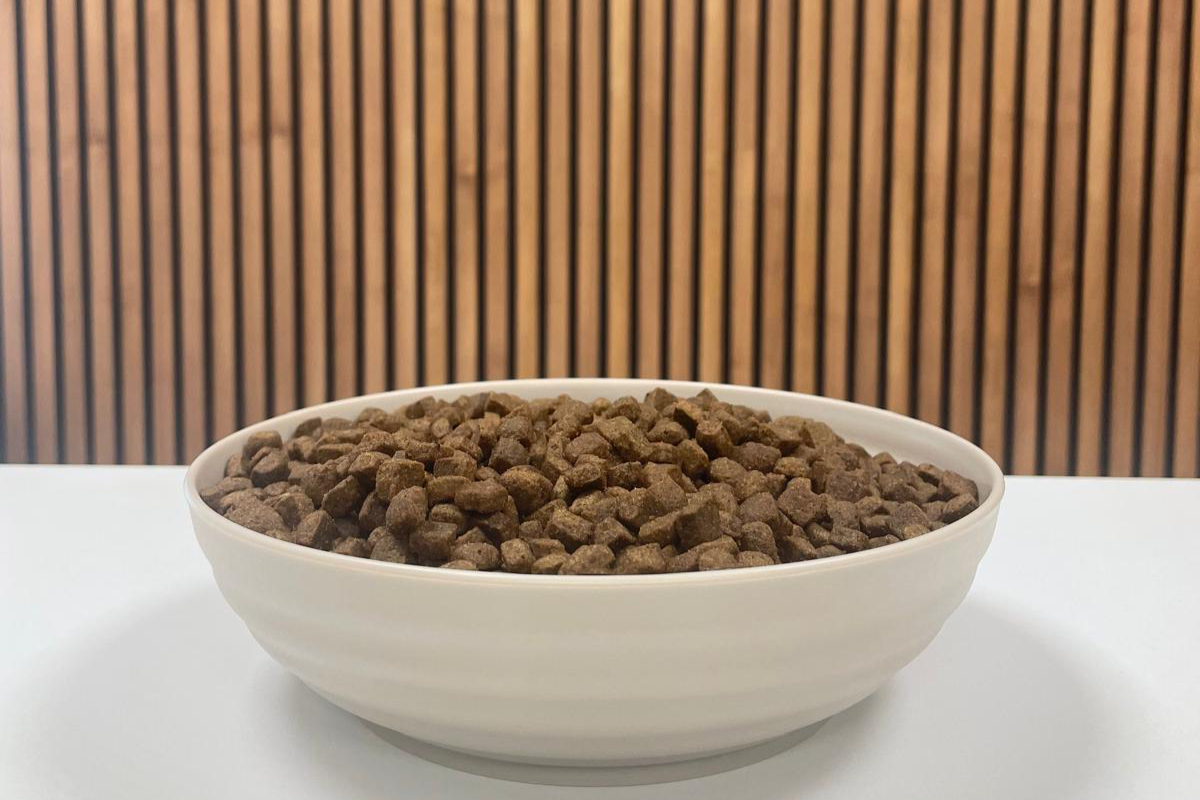Did you know that some intelligent dogs can learn a new command in under five repetitions? Some even obey it 95% of the time. But which breeds are they? How is canine intelligence measured? And how can this help you choose the right food for your dog? Stay with us — we’re about to answer all these questions.
What Does It Mean for a Dog to Be Intelligent?
Intelligence in dogs isn’t just about obedience. Scientists distinguish between several types of canine intelligence:
- Instinctive intelligence: how well the dog performs tasks it was bred for (hunting, herding, guarding…).
- Adaptive intelligence: the dog’s ability to solve problems on its own.
- Working and obedience intelligence: how quickly and reliably a dog learns and follows human commands.
When we talk about “intelligent breeds,” we’re usually referring to this last type — it’s the most studied and easiest to measure.
How Has Dog Intelligence Been Measured?
Psychologist Stanley Coren, author of The Intelligence of Dogs, led one of the most comprehensive studies. Based on surveys from over 200 obedience judges from the American Kennel Club, he ranked more than 100 breeds according to how quickly and reliably they obey commands.

The 10 Most Intelligent Dog Breeds According to Science
Here’s the ranking based on Coren’s study. We’ve included a comparison table to help you decide which breed suits you best:
| Breed | Intelligence Level | Learning Speed | Usual Obedience | Best For |
| Border Collie | Very high | Under 5 repetitions | 95%+ of the time | Activities, sports, active families |
| Caniche (Poodle) | Very high | Under 5 repetitions | 95%+ of the time | Allergy sufferers, small homes |
| Pastor Alemán | Very high | Under 5 repetitions | 95%+ of the time | Security, families, working roles |
| Golden Retriever | Very high | Under 5 repetitions | 95%+ of the time | Children, families, therapy work |
| Doberman | Very high | Under 5 repetitions | 95%+ of the time | Protection, experienced owners |
| Pastor de Shetland | Very high | Under 5 repetitions | 95%+ of the time | Training, active homes |
| Labrador Retriever | Very high | Under 5 repetitions | 95%+ of the time | Families, elderly people, service work |
| Papillón | Very high | Under 5 repetitions | 95%+ of the time | Apartments, older owners |
| Rottweiler | Very high | Under 5 repetitions | 95%+ of the time | Security, structured training |
| Pastor Ganadero Australiano | Very high | Under 5 repetitions | 95%+ of the time | Work, sports, countryside |
What Do These Dogs Have in Common?
- Strong focus and attention
- Eager to please their human
- Adapt well to routines
- Energetic and physically resilient
Not all breeds are right for every owner. That’s why lifestyle compatibility matters when choosing a dog.
Are Intelligent Dogs Easier to Train?
Generally, yes. But they also need more mental stimulation and physical activity. If they get bored or aren’t challenged, they can develop unwanted behaviors. So if you choose a highly intelligent breed, be ready to keep them busy.
- Scent games
- Agility or obstacle courses
- Food-based interactive toys
- Daily training with new commands

What Does This Have to Do with Nutrition?
A highly intelligent dog needs sustained energy and nutrients that support its brain and body. At Summit10, we formulate our recipes with dogs like these in mind:
- High-quality proteins (like fresh chicken, salmon, or venison)
- Essential fatty acids (like omega-3 from salmon)
- Natural antioxidants that support cognitive function
A complete, balanced diet with functional ingredients is key to keeping these brilliant dogs in top form.
What If My Dog Isn’t a Purebred?
Intelligence isn’t limited to pedigree dogs. Many mixed-breed dogs outperform purebreds in learning and problem-solving. The key is to observe your dog: if it responds well to training, solves problems, or anticipates routines, it may be smarter than you think.
Which Intelligent Breed Is Right for Me?
It depends on several factors:
1. Home Size
- Small home: Papillon, Miniature Poodle, Sheltie
- Large home or garden: Border Collie, German Shepherd
2. Activity Level
- Active/sporty: Australian Cattle Dog, Doberman
- Calmer: Golden Retriever, Labrador
3. Time for Training
- Lots of free time: Border Collie, Sheltie
- Less time: Labrador, Golden Retriever
Tip: Choose based on compatibility, not just intelligence.
Frequently Asked Questions About Intelligent Dogs
What is the most intelligent dog breed in the world?
The Border Collie is widely regarded as the most intelligent dog, based on its quick learning and consistent obedience.
Can I improve my dog’s intelligence through training?
Yes. Training, mental stimulation games, and proper nutrition help enhance cognitive skills.
What kind of food does a smart dog need?
A diet rich in protein, essential fatty acids, and antioxidants helps support the brain and body of mentally active dogs.
Conclusion About Intelligent Dogs
Dog intelligence isn’t just trivia — it’s a guide to understanding your pet and giving it what it truly needs. Choosing an intelligent breed means committing to its mental stimulation, care, and nutrition.
At Summit 10, every recipe is crafted to support your dog’s natural abilities, no matter the breed. Because a smart dog deserves smart food.
Want to find the best formula for your dog? Visit our website and explore our range.


